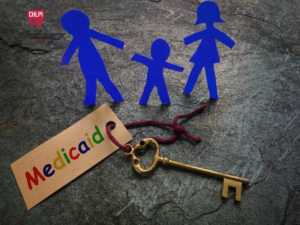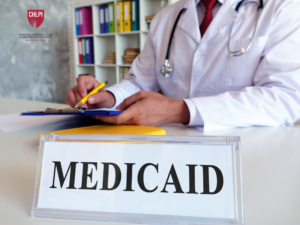Originally published on April 9, 2020 by Law.com. Written by Karen Sloan
Law school clinics and programs have pivoted in recent weeks to focus on legal matters involving COVID-19—even as their own operations have transformed from in-person to online formats.
Their efforts involve advocating to protect the health of prison inmates, ensuring access to food amid a pandemic, executing wills remotely, helping small businesses buffeted by the crisis and much more.
“No matter what your subject matter is, there are COVID-related issues, so you don’t need to start a COVID clinic,” said Michael W. Martin, the director of clinics at Fordham University School of Law. “In many ways, the COVID issues will come to you regardless of what you’re doing because it’s affecting society on such a plenary level.”
Here’s a sampling of how law school clinics and students are pitching in.
Fordham University School of Law
As coronavirus became a serious threat in U.S., Fordham’s Federal Litigation Clinic sprang into action. The three professors and 12 students in the clinic immediately began reaching out to clients in prison, as well as their families, to determine whether they have any underlying conditions that make them especially vulnerable to the COVID-19. That work has been made all the more difficult as prisons have closed to all visitors, including lawyers, and prisoners have had increasingly less access to phone calls, said clinic director Michael W. Martin.
“COVID, in and of itself, has not been deemed worthy of emptying the prisons,” Martin said in an interview Thursday. “You are going to need COVID-plus, which goes to increased susceptibility for a particular person, or the circumstances are such that the person is so close to release that we should consider releasing they early.”
Since then, the clinic—like other federal litigation clinics—has been petitioning for bail, compassionate release, or early release for at-risk clients. Part of that work involves reaching out to prosecutors to determine whether or not they will oppose those measures. The clinic has enjoyed some early success in those efforts.
“There is no question that our students are engaged in this topic,” Martin said. “They are trying to get people out of prison and they feel like life and death is at stake.”
Harvard Law School
The closure of universities, restaurants, and many other businesses due to social distancing requirements means that a lot of excess food isn’t getting into the hands of those who most need it. Enter Harvard’s Food Law and Policy Clinic, which is working to find ways to redirect that excess food to food banks; is seeking to inform public policy to ensure that government programs such as the Supplemental Nutrition Assistance Program can facilitate food delivery; and is working to get government aid to food producers. It’s the type of work the clinic has been doing for years, but the pandemic has created a tsunami of food-related issues that need immediate attention.
“It’s been a really chaotic and frightening time,” clinic director Emily Broad Leib told Harvard Law Today. “It’s as if everywhere we turn there are ways this crisis is impacting the food system. I’ve been blown away at the number of our students who have reached out and asked to help, even during spring break.”
The clinic has produced a handout designed to help organizations donate their excess food. It has also produced a briefing for state and federal agencies on how to implement food delivery through existing nutritional assistance programs. And the clinic has also worked with a national agriculture advocacy group to help get appropriated funding into the hands of farmers and other food producers.
University of California, Berkeley School of Law
Many small businesses are struggling during the virus pandemic, and several initiatives at Berkeley Law are seeking to help. The school’s New Business Community Law Clinic is hosting informational webinars for small businesses trying to navigate the crisis and decode the provisions contained in the CARES Act, and the $350 billion Paycheck Protection Plan, which offers low-interest loans to small businesses that retain their employees.
Along those lines, Berkeley law professor Robert Bartlett, co-director of the school’s Center for Law and Business, has also been creating informational resources for small businesses. Students in his corporate finance class also wanted to get involved, so the center has created a process whereby businesses can request to be paired with the Berkeley Law student to help them navigate the process of requesting government assistance. Nearly 100 companies have signed up thus far, as have 99 law students and 17 attorneys.
“Helping companies solve cash flow challenges is at the heart of corporate finance,” Bartlett said in an article on the school’s website. “So it’s a great opportunity for students to learn while helping small businesses weather the storm.”
Cornell Law School
Cornell law school’s clinics are tackling myriad legal aspects of the coronavirus outbreak, from helping business owners and advocating for the release of immigrant families held in detention.
The work of the school’s Estate Planning Practicum is especially timely, given the mounting death toll of COVID-19. The practicum’s three adjunct professors and students scrambled to create a system to execute wills remotely for low-income clients in Tompkins County, where Cornell is located. Not only can clients not come in person to the clinic, but the professors and students are now scattered across the country with the university shut down.
“They could have said, ‘Sorry, we can’t finish your will and we’ll call you when this is all over,’” said Beth Lyon, the school’s clinical director. “But they know that having a will is especially important at a time like this, so the faculty, students and community partners are bending over backward to get this done. As lawyers and lawyers in training, we have a privilege and a special responsibility to extend our efforts to mitigate inequality as this crisis unfolds.”
University of California at Los Angeles School of Law
An increasing number of organizations and policy experts are calling on courts and prison authorities to release certain inmates who are especially vulnerable to the coronavirus and take additional steps to protect the health and safety of prisoners.
UCLA law was an early mover on that front. In late March, the school’s Prison Law and Policy Program created two databases of information designed to assist in the effort to protect inmates. One database is a survey of correctional responses to the coronavirus, complete with reported cases and deaths among staff and prisoners. It’s intended to be a resource for prisoner advocates, journalists, and the public to understand how the virus in impacting the prison system. The second database, dubbed “Statutory Release Powers,” offers state-by-state information on the legal authorities that have the power to release people from custody. That includes judges, governors, and sheriffs.
“Policy responses to alleviate the risks are being developed on the fly, and advocates need to see what is going on in real time,” said program director Sharon Dolovich in an article on the school’s website. “By maintaining these resources, we seek to support the people working to protect prisoners’ rights and keep them safe, while correctional authorities combat the spread of COVID-19.”


